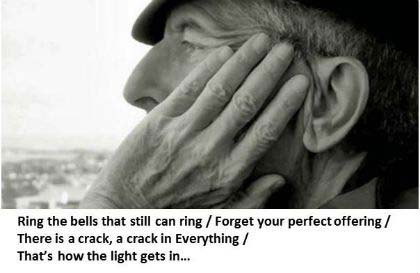Dealing with Regret: 4 More Insights for Moving On

In the first part of this post on dealing with regret, we looked at the nature of regret; here we look at some clues or hints into how to possibly move through it into the rest of our lives.

An important part of the answer may well consists in not allowing the regret to consume us because the space it would otherwise occupy in us is filled with burning desire to live the life that is before us authentically and fully.
Quit Passing Judgement on Yourself
Here is a key insight: I am not in a position to stand in judgment on my own life
Only in the rarest circumstances are we in a position clear-sighted enough to have some kind of clear view of our actions, their effect, and, ultimately, their meaning in the whole context of our lives. Only rarely, if ever, do we really grasp the influence of the unconscious psyche on our decisions.
Surrender
It may be a real benefit to have the right kind of “spiritual”, philosophical or observant outlook, that allows us to recognize that, whatever we choose to call it, there is something greater than ourselves determining the course of our lives. Out of the heartbreak and loneliness of an extremely difficult life, Dame Julian of Norwich was able to say “and all will be well, and all will be well, and all manner of thing shall be well.” These words might seem like a flip exhortation to “keep on the sunny side”– unless uttered by someone who themselves has been through some very, very dark nights.
Passion
It’s fine to say, as I did above, that we should let our regret be swept away by burning desire to live the life in us that really wants to be lived. But how do we recognize this burning desire? Intense regret may seem to eclipse any such passion or meaning. This may well be where the individual is called to examine the desolate places in his or her life, the “swamplands of the soul” as James Hollis calls them, to find the embers underneath the damp leaves of time.

This is demanding work. We may well need abiding support in doing it — the kind of support embodied in /a-midlife-transition, or Jungian analysis.
Amor Fati
Jung often uses the phrase “amor fait” — “to love one’s fate“. He makes it clear that such a phrase is not to be used glibly or lightly. For Jung, the product or the fruit of mature life can sometimes be that which is often contrary to the spirit of youth: an acceptance somehow of the inexplicable rightness of one’s own life.
Hollis reflects further on this:
Anyone conscious of, or reflective upon, his or her history will be humbled and obliged to pause and discern those threads of influence that are at work in us all the while…. Loving one’s fate means that we live as fully as we can the life to which the gods have summoned us. We are here to figure out and serve what life asks of us. This is not resignation, it is not defeat, it is not fatalism, it is not passivity… In the midst of defeat for the ego, we are blessed with concommitant abundance [italics mine].
He goes on to quote the words of Yeats’ poem “A Dialogue of Self and Soul”:

This is not some glib piety. If we are fortunate in our aging, it might be wisdom we can take to our own breast, rather than advice to give to others. Yet, at the right time of life, it may prove to be deeply healing.
Depth case studies can often assist in dealing with regret, as it can bring awareness of aspects of ourselves that can take us beyond the limited perspective of the ego.
Brian Collinson, Psychotherapist and Jungian Analyst
[cta]
